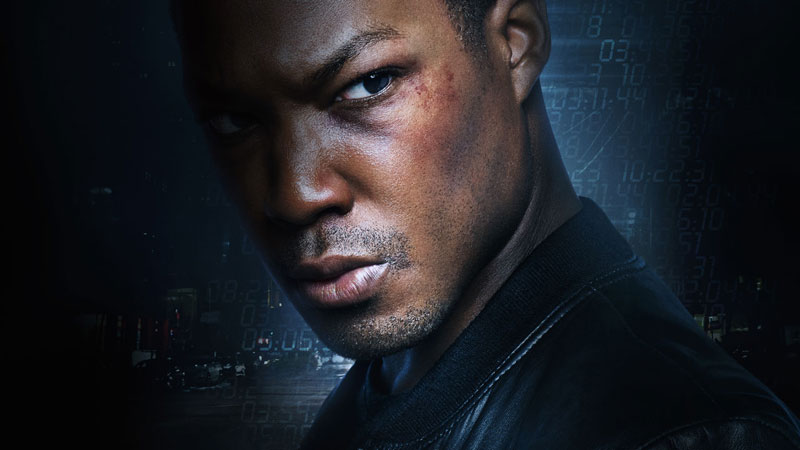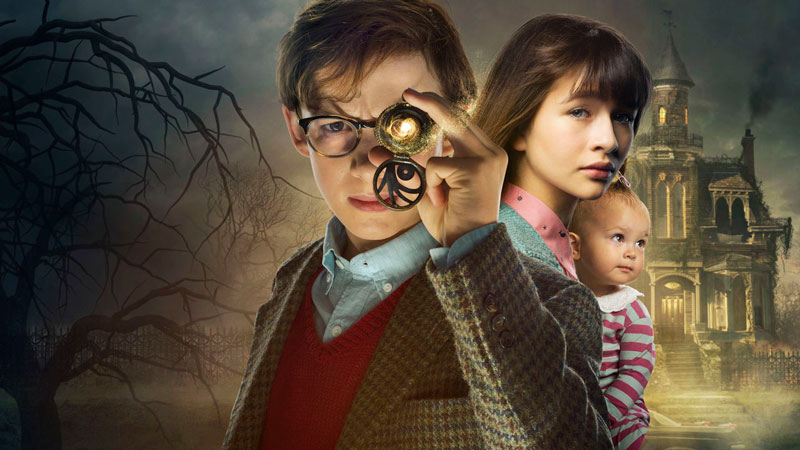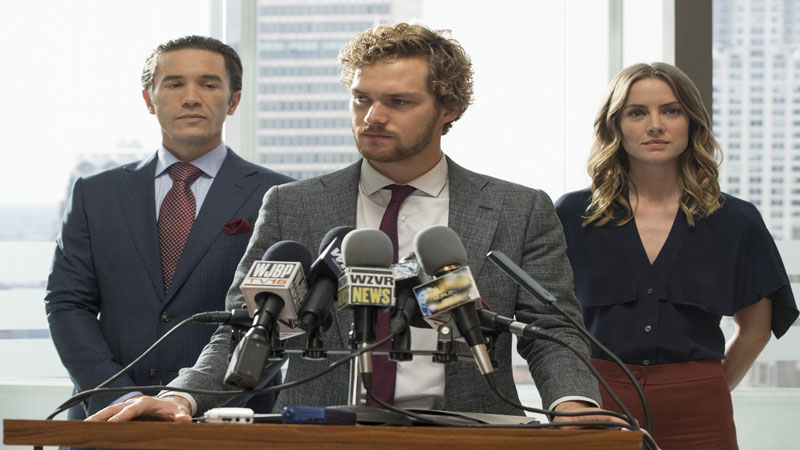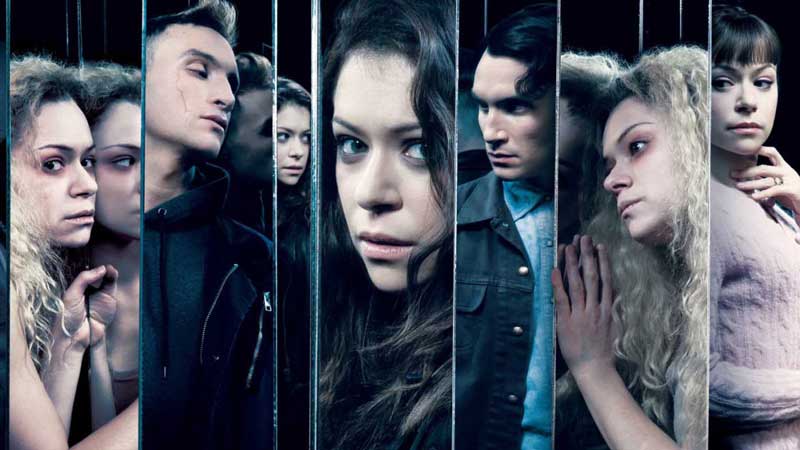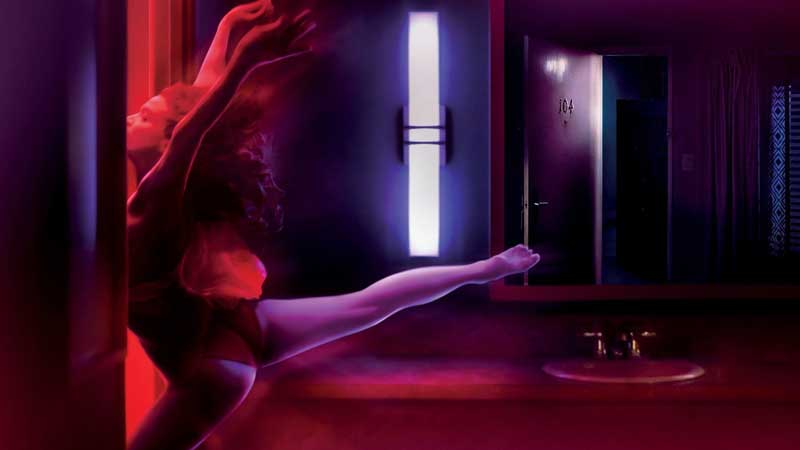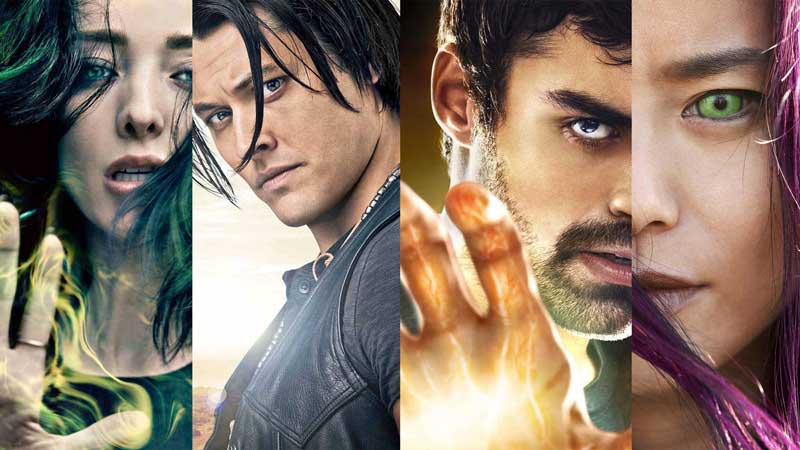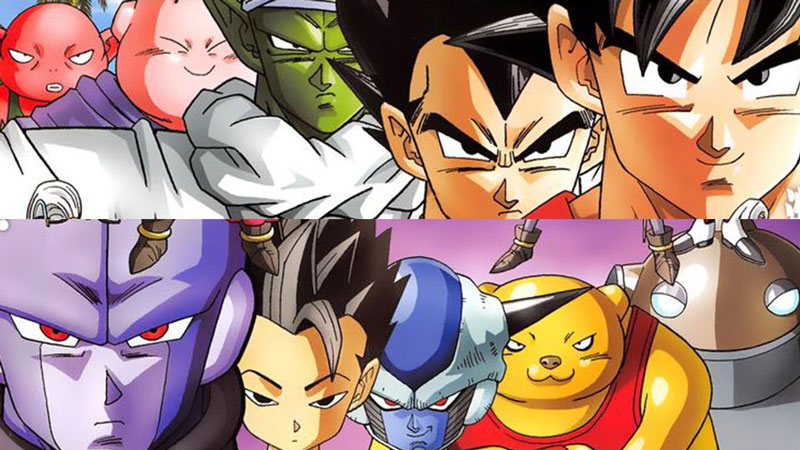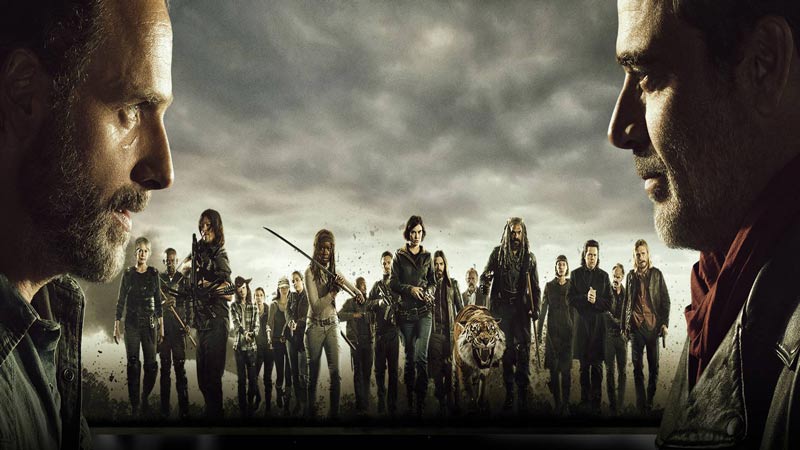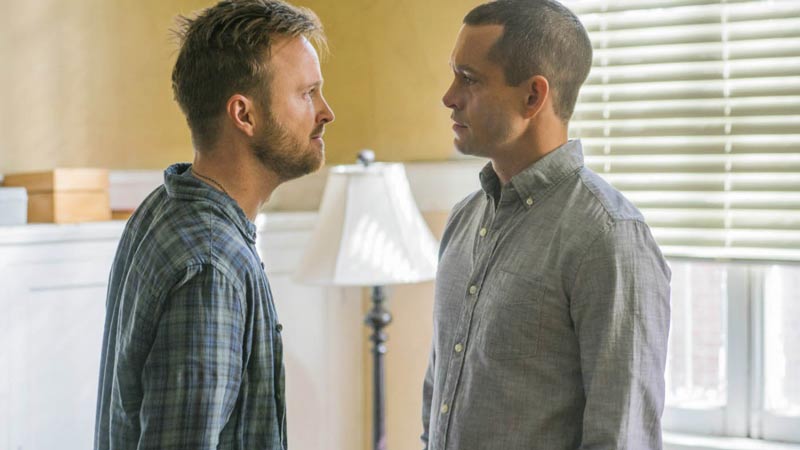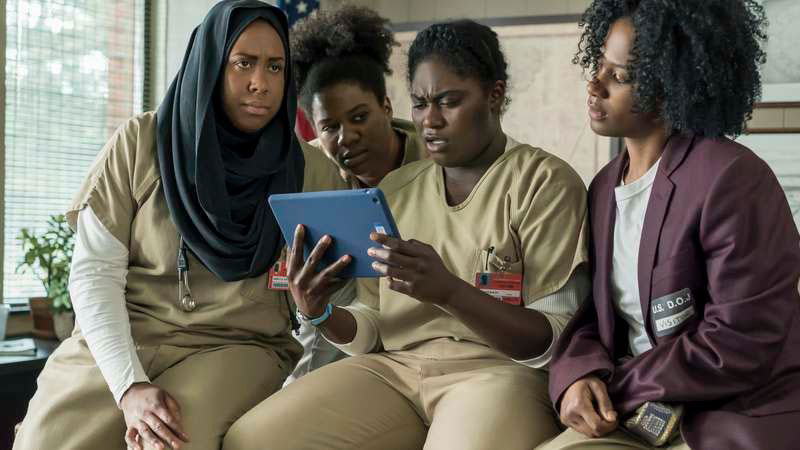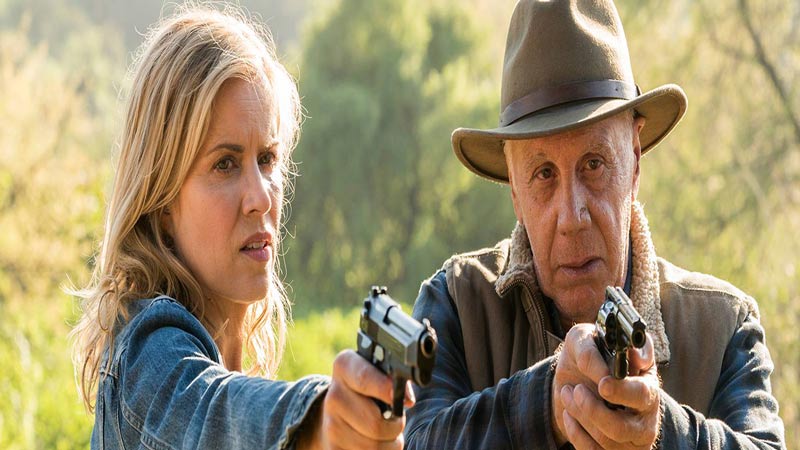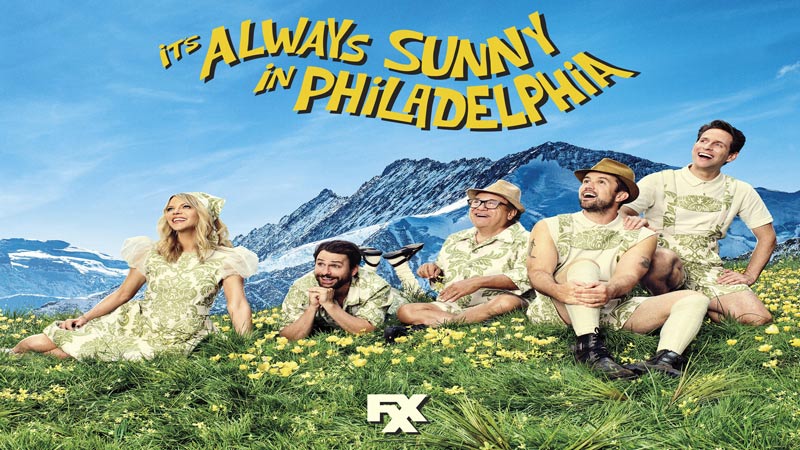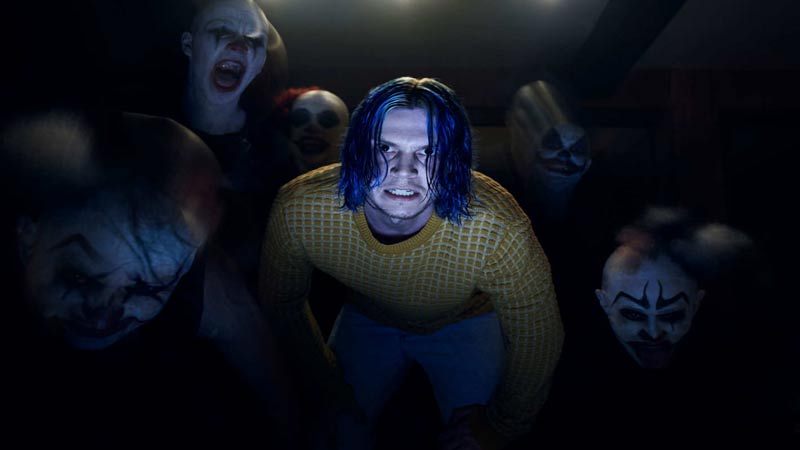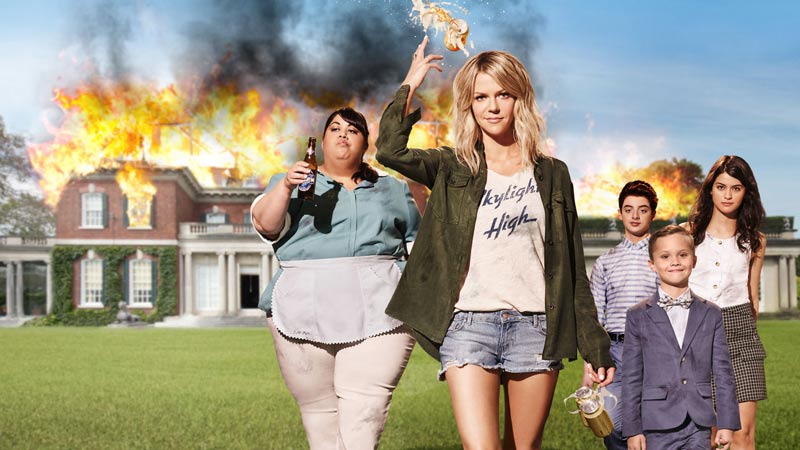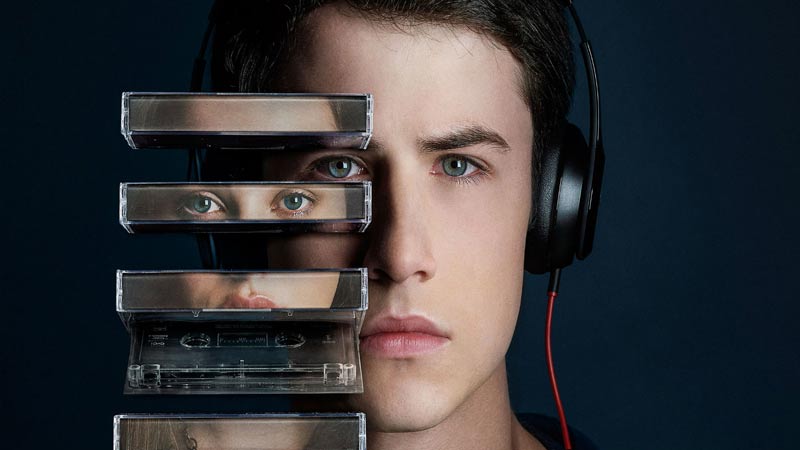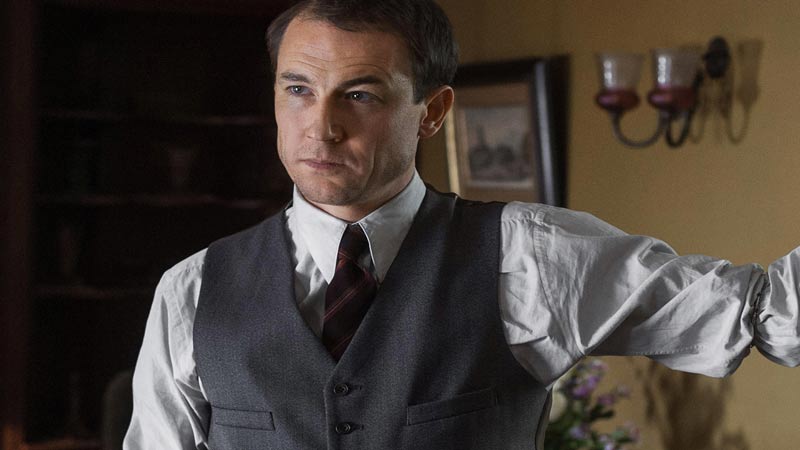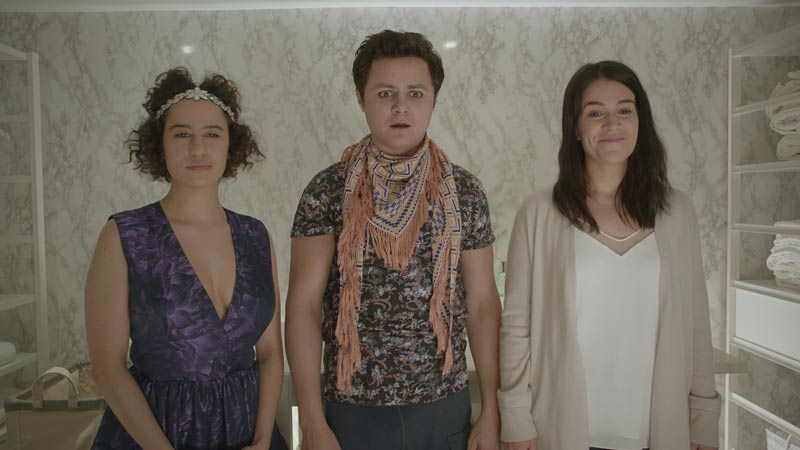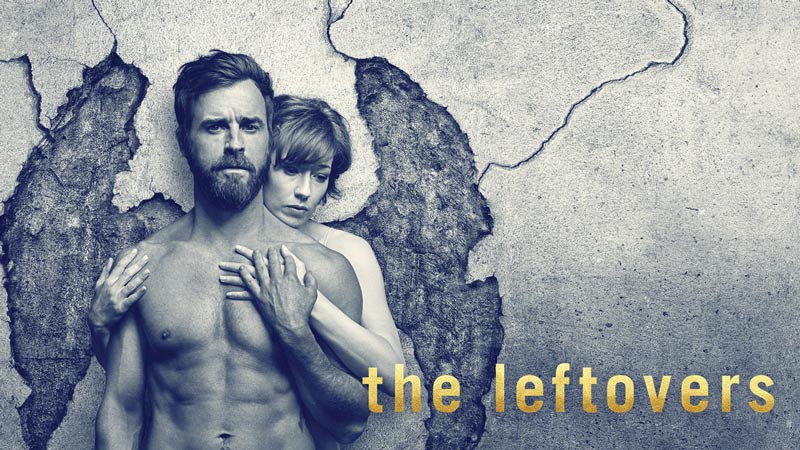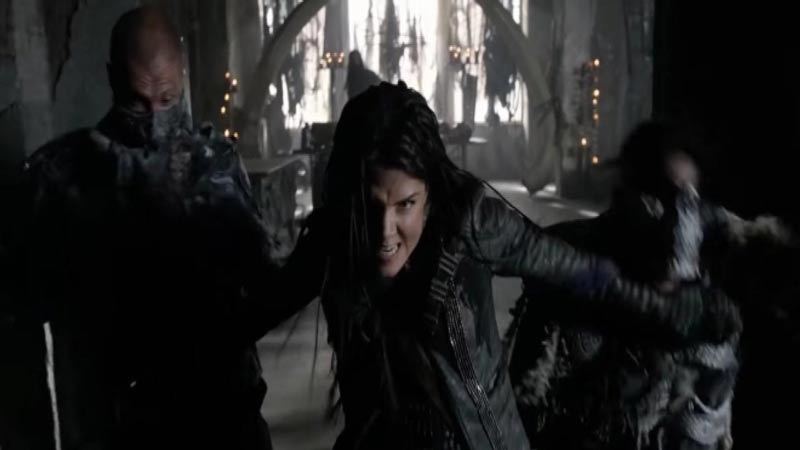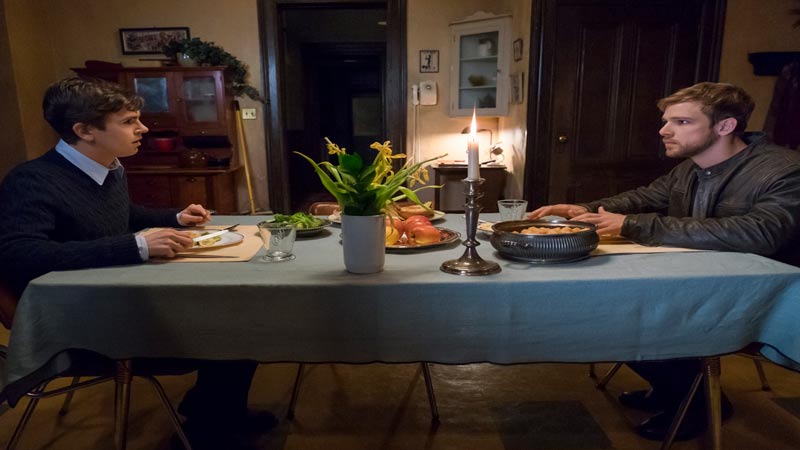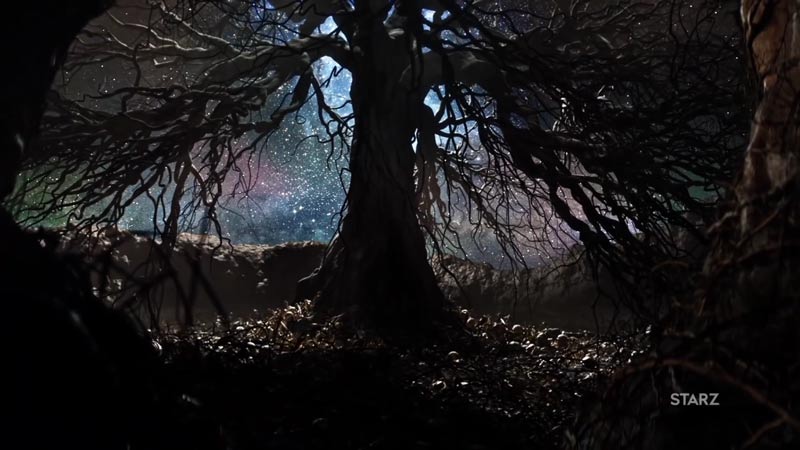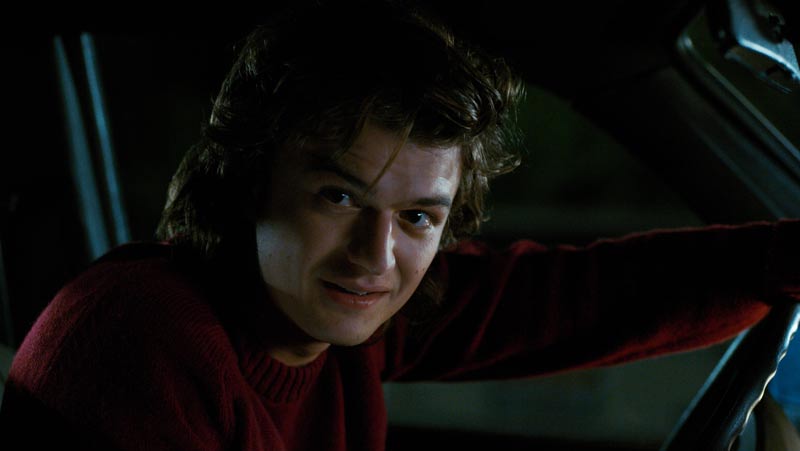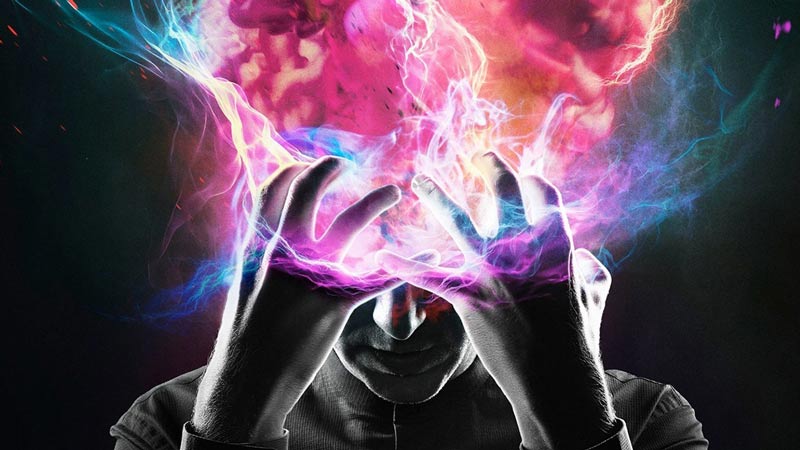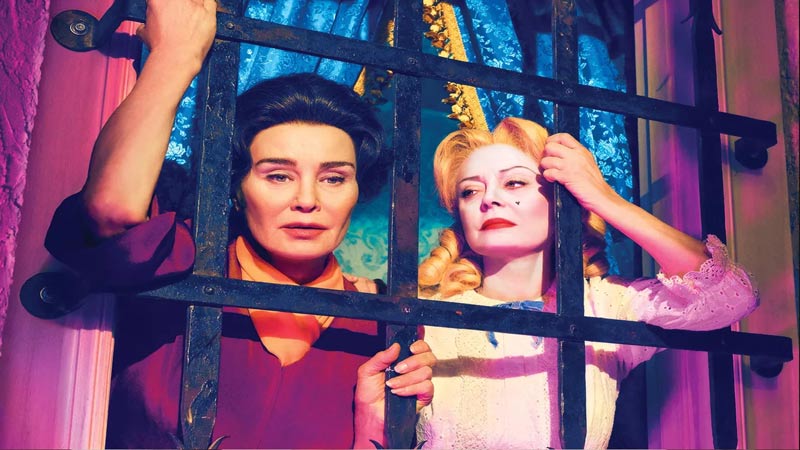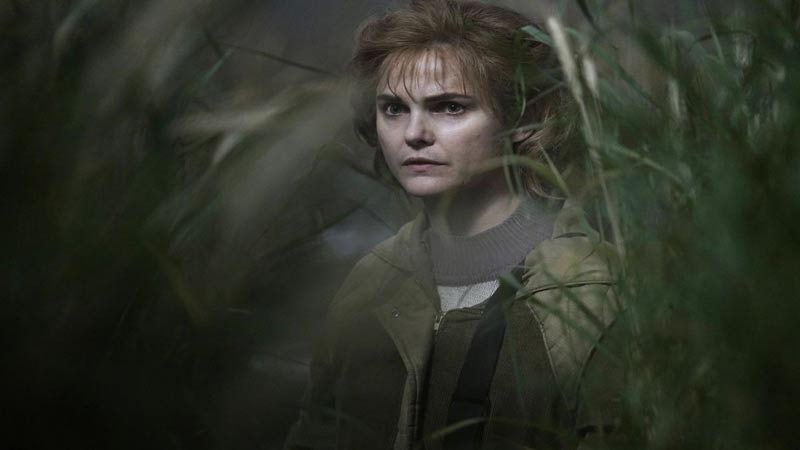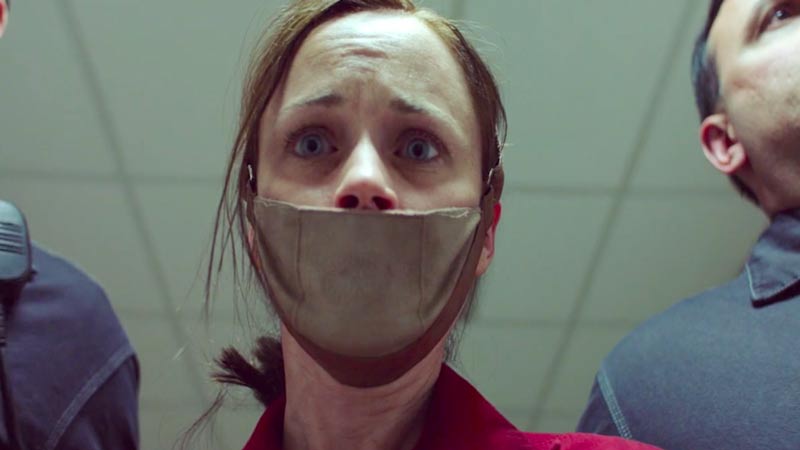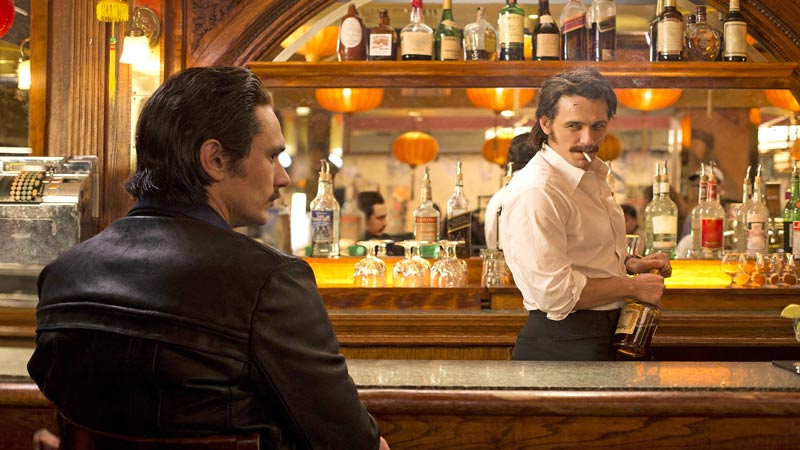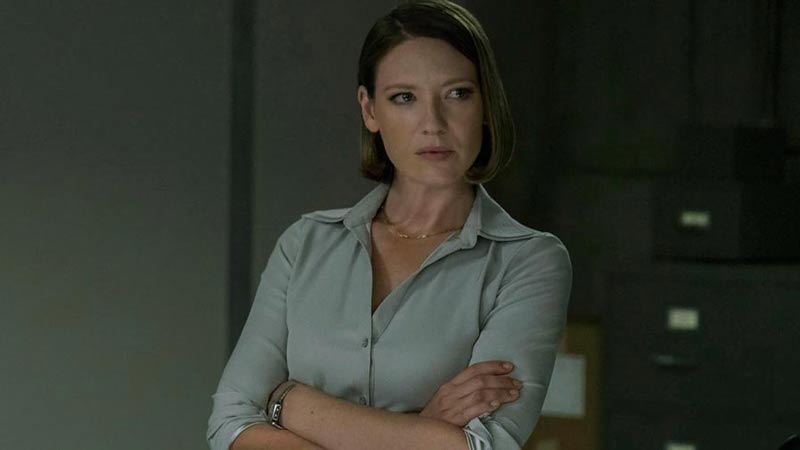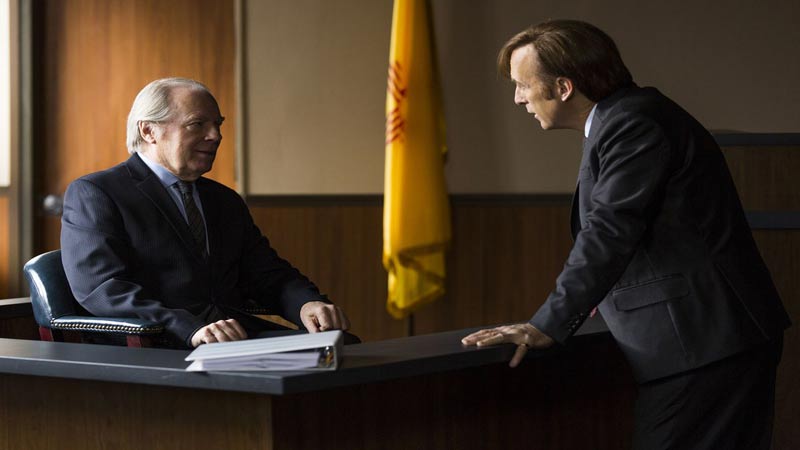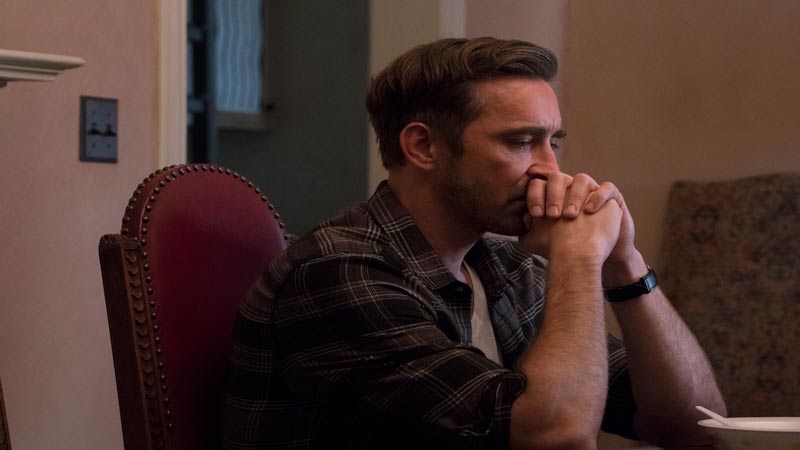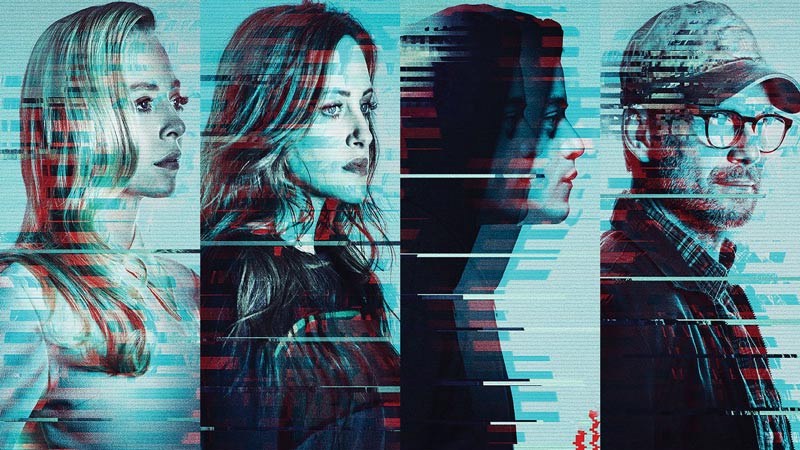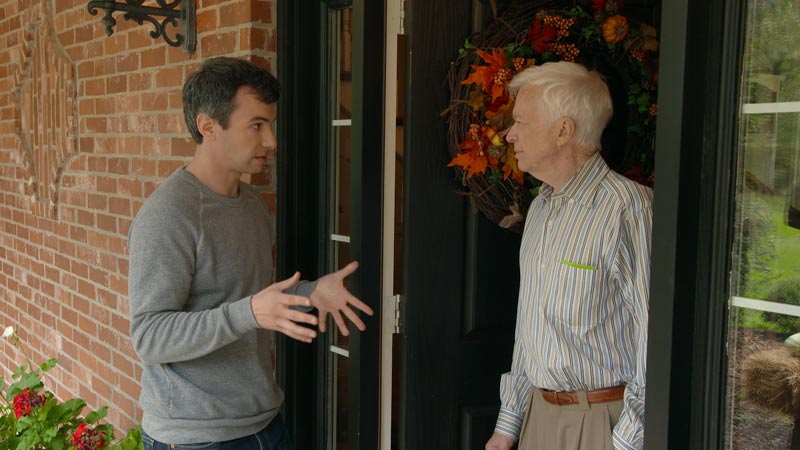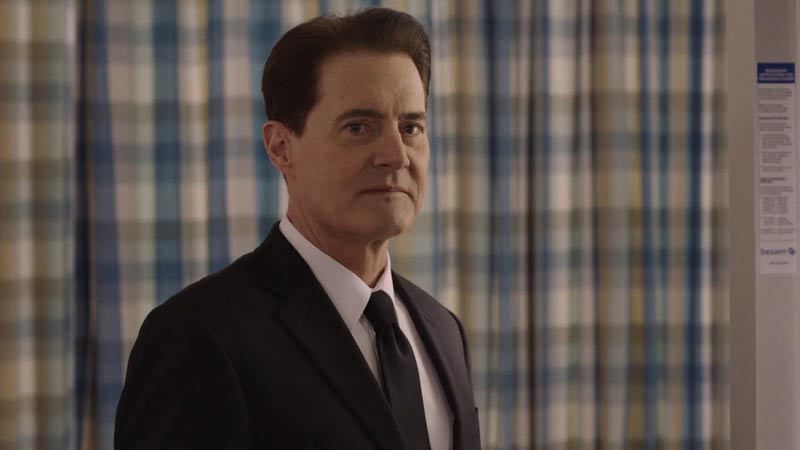24: Legacy
Fox
24 used to be a phenomenon. Starring Kiefer Sutherland, it was a post 9/11 show that dialed into Americans' need to see terrorist plots foiled and brought to justice. After eight seasons of Jack Bauer kicking ass, it ended and except for a brief return in 24: Live Another Day (2014), the Kiefer Sutherland era of 24 was officially over. So when 24: Legacy was announced with no Jack Bauer I wasn't exactly thrilled. It certainly looks like the 24 from the old days, but Corey Hawkins (The Walking Dead) brings nothing new to the table. It became very clear that this was not an attempt to imitate Kiefer Sutherland's heightened performance, but what we got instead was a reserve of quiet intensity that never really went anywhere. Since the season ended, 24: Legacy has been cancelled, and while there are rumblings of another iteration of the franchise in the works, unless Kiefer Sutherland returns I'm not expecting much.
A Series of Unfortunate Events
Netflix
I used to read Lemony Snicket when I was a kid. The trials and tribulations of the Baudelaire orphans were a welcome respite from the horrifying days of public education, and the writer's unique wit added a touch of sarcasm that you too might enjoy. However, I'm sorry to inform you that the Netflix iteration of this tale is dull, dreary and disasterously boring. The orphans' torturer, Count Olaf, is played with conviction by Neil Patrick Harris (How I Met your Mother/American Horror Story), but that doesn't necessarily make him very pleasant to watch. I might keep watching this, but it often feels like a chore to get through and I'm not a huge fan of it.
Iron Fist
Netflix
Disclaimer: I have only seen up through Season 1, Episode 7: Felling Tree with Roots. This has also prevented me from being able to start The Defenders or The Punisher because I'm a stickler for continuity
Having introduced three of its four team members for Netflix's The Defenders mash-up, I was initially interested to see how the final show would fare. After all, Daredevil was always pretty good and Jessica Jones was great (featuring Dexter's Melissa Rosenberg as showrunner). Luke Cage may have faltered a bit as the season wore on, but it still featured some outstanding performances, so I had decent hopes going into Iron Fist. After all, this was going to be featuring Loras Tyrell from Game of Thrones, so how bad could it be?
The warning signs started popping up when it was announced that Scott Buck would be leading the reigns. Sure he may have been involved in one of the best seasons of Dexter, but he was also the showrunner during it's two absolute worst seasons. Not to mention Buck allowed the show to crash and burn in a river during its final season, forever tarnishing its legacy. So when he was tapped for Iron Fist, it wasn't a good sign. In addition to this, it turns out when you take Finn Jones from a small supporting role on Game of Thrones and give him his own show, he wasn't exactly equipped to handle this new lead role. A lot of people have commented about the white-washing of the originally Asian role (which makes the themes play far weaker), but for me it's his performance. It seems like Finn Jones is really only capable of two emotions: calm and annoyed; what this leads to is a lot of scenes that feel either slow or annoying. The supporting cast is actually far stronger (particularly the Meachum family), and the fact that Colleen's race was maintained makes it all the more painfully obvious how forced it feels. Luke Cage embraced it's roots and was all the better for it. Why couldn't Iron Fist?
Homeland
Showtime
Homeland used to be one of the most engaging shows on television. It had a compelling premise, a great pair of leads and it had a keen knack for tapping into current events. These days, Homeland's premise has gone soft, with the original idea long since abandoned, and every year has been an attempt to reboot with a different idea. This year the writing staff, and the rest of the world, was caught off guard when the 2016 presidential election didn't go as planned. In order to remain relevant, the writing staff was forced to completely rework several storylines and I'd wager that has a lot to do with what went wrong and ended up creating the first truly bad season of Homeland. When last season was ending, it appeared that Rupert Friend was on his way out of the show. Instead, what happened was the writers doubled down and gave him the biggest storyline he's ever had. I personally think that Rupert Friend was doing the best he could with what he was given, but what came out of all of this was wasn't just bad: it was boring. Step it up Homeland, you've got two years left.
Orphan Black
BBC America
And thus, Orphan Black's clone club finally came to an end. A show long past its peak ended it's fifth and (planned) final season this year with far too much focus on the origins of Neolution (self-directed evolution). The bulk of the story takes place on the island of Dr. Moreau, and it's ALL SO BORING! The great fun of Orphan Black in its early years were the conflicts between the individual clones (such as Helena and Rachel) played by Tatiana Maslany. However, now that those characters have either been pacified or sidelined, all the weight has been placed on the ever so convoluted mythology that spiraled out of control sometime after the Castor clones were introduced (it really doesn't help that as Skyler Wexler has gotten older she hasn't exactly blossomed as an actress). Originally, it felt like there was going to be a war between Castor and Leda (our sisters), but instead the Castor line of clones were pretty much destroyed right after they were introduced (and given far less distinct personalities). There are still some glimmers of what used to make this show such a pleasure to watch (including an early episode focused on Alison [by far the best clone, FIGHT ME!], and another late episode centered around Rachel), but the rest are too bogged down with uninteresting characters.
Room 104
HBO
Welcome to the Tinder of television. A new anthology series from the Duplass brothers (one of whom was the creator of the indie gems that are the Creep films), Room 104 episodes are a bit hit-or-miss, with more miss than hit. The hook is that each episode takes place in a single hotel room (a brilliant pitch with its low-budget aspirations), and each episode offers a different possibility, from creepy horror, to heart-wrenching drama, to...interpretive dance? There are certainly some gems hidden in this series (including a balls to the wall boxing match and the final moments between an old couple), but too many episodes either fail to deliver a satisfying payoff or are marred with a concept that, while interesting on paper, is not well executed. This is undoubtedly due to the decision to have every episode directed by a different person, which allows every episode to have a different feel, but can also result in a huge variation in quality. I'll keep watching it, but hopefully next year there's a better mix of talent involved.
The Gifted
Fox
Disclaimer: I have only seen up through Season 1, Episode 5: boXed in.
2017 has certainly been an interesting year for the X-Men franchise. After the disappointment that was X-Men Apocalypse, X-Men had a very strong rebound with the fantastic Logan, by far the best Wolverine movie ever made. In addition to that, two X-Men TV shows premiered this year: the spectacular Legion (more on that later) and The Gifted. Featuring two stellar leads with Stephen Moyer (True Blood) and Amy Acker (Person of Interest/Angel), I had high hopes for this show. While I'm not completely caught up on this one, from what I've seen this show has some potential, but it's hamstrung by predictable plotlines and too many characters. Beyond the two actors I mentioned (while they receive top billing, they aren't always the focus of what's going on), the rest of the cast is just okay. The other problem is that the stakes just don't seem very high; this often feels like a network television show, despite the visual effects work. The last episode I saw added some more heart and character development, so I'm going to stick with it, but hopefully the writers are going to break some of these shackles and move into more interesting territory.
Dragonball Super
Adult Swim
Continuing the long-running Dragonball series by Akira Toriyama, Dragonball Super picks up where Dragonball Z left off in 1996 (or 2003 for me, I grew up on the English dubbed version). Before this iteration of the show began, there were two films released (Battle of Gods/Resurrection F) that were chosen to be the first couple of arcs for Dragonball Super. This has proven to be a huge mistake that completely killed the initial hype for the series and was essentially an extremely dragged out version of the films with poor animation. However, now that those arcs have been completed, new material has finally started surfacing. The Universe 6 arc was fresh and entertaining, featuring a particularly memorable fight with Vegeta against his Saiyan counterpart in the tournament. Now that the series has moved beyond retreads I'm interested to see where it goes next (as long as there isn't too much filler).
The Walking Dead
AMC
2016 was a rough time for The Walking Dead. The show had just finished taking heat for hiding supposedly deceased characters under dumpsters and then had the gall to drag out what was supposed to be one of the most impactful moments in this entire narrative to ridiculous lengths. So when the show returned in 2017 after a lackluster mid-season finale, I wasn't expecting much. After all, these used to be huge events on The Walking Dead (Remember Sophia? Remember Michonne VS the Governor?). Sure, the beginning arc was promising with our heroes' return to affirmative action, but it was far too drawn out. Did we really need this much setup for All Out War, the arc that apparently couldn't begin until season eight? There used to be a time when it felt like characters on this show could go at any moment; when the big moments weren't just saved for finales and premieres (remember The Grove? remember Clear?). Sure, there were some nice moments for Sonequa Martin-Green, but they completely killed the pace of the season seven finale. Then, even when the war finally begins everything feels so haphazard. Despite the fact that we've been given a lot of time with each individual community involved in this conflict, the geography has been so poorly laid out and the show is so deadset on not telling us what is going on until it's already happening that it becomes almost impossible to figure out what the plan is. The pathos that Ezekial had to go through was a welcome addition, but it came to the detriment of his character: now instead of his kind-hearted optimism he's just as dour as anyone else. Finally, that big character moment from the mid-season finale is a huge shift from the comics and it remains to be seen just how much that will affect things going forward, but big changes may be coming. Oh well, at least Lennie James is still doing good work, even if the writing for his character is still frustrating. Maybe he'll fare better on Fear the Walking Dead.
The Path
Hulu
As The Path continues, I remain a member of the Light. Although our teachings are written in uneven scripture, those that lead the way continue to keep me on the ladder, climbing the rungs with a steadfast resolve. Bless our protectors of the Light, Cal and Sarah, as they guide us into the public eye. I pray for our former member Eddie, troubled as he is with his blasphemous proclamations. I only hope that the way forward is filled with a purge of those who would lead us astray.
Orange is the New Black
Netflix
How did we get here again? You were doing so well! You had turned things around with a return to the dark raw material that helped me get engaged with you in the first place! But now...I'm just not that into you anymore. Your flashbacks are getting duller and more irrelevant than ever. Your villains are becoming cartoonish and haphazard. Sure, every once in a while you can still make me feel something, but then you gotta go and muck it up. You even went and pulled a Lost and did an episode focused on how your (former) main character got her tattoos! Girl, get your shit together!
Review
Comedy Central
The second season of Review was my second-favorite show of 2015. The way it masterfully balanced extremely dark comedy and the heart-breaking breakdown of Forrest MacNeil's life made it a standout across the packed television landscape. This made it all the more frustrating the way it's final season sizzled out. With a huge delay and an unclear episode count, Review ended the series with a highly spoilerific marketing campaign (that ruined the impact of multiple episodes) and a sad, disappointing and highly fitting conclusion. The impact that the vastly shortened episodic count had on my viewing experience cannot be understated. The only review I remember enjoying that much was in the premiere. Goodbye Review, and I'll always remember you for season two.

Fear the Walking Dead
AMC
After a lackluster second season, Fear the Walking Dead came back and completely changed the way it worked, killing off a main cast member right off the bat and introducing a whole new way of life. The introduction of Brokejaw Ranch has resulted in a sharp increase in quality that has made me feel like the showrunners finally know what the hell it is they're doing compared to the schizophrenic nature of the second season. And with this farm comes a whole new gaggle of hens, introducing the Otto family and their quarrel with the Native Americans. Dayton Callie (Deadwood) as Jeremiah Otto has some great material here with Kim Dickens' Madison that made me feel like I was watching Deadwood all over again. Meanwhile, the return of Rubén Blades as Daniel Salazar has greatly increased my interest going forward after his unceremonious exit last year, considering he was one of the best actors in the cast. Alycia Debnam Carey (The 100) also finally got her big showcase episode and it was long overdue. There are still some rough edges here and there (Madison's big moment with Troy in the finale felt a bit premature), but this is definitely a step in the right direction. It should be interesting to see where things go from here with word of new cast members afoot, the winds of change are rising.
It's Always Sunny in Philadelphia
FXX
Last year was a disappointment with few laughs and cheap thrills. However, this year the gang came back strong with a mind-bending premiere and a parody of the likes of Making a Murderer and The Jinx. These hooligans continue to entertain, even when they're just visiting a water park. Most surprisingly, one of the gang's most troubled members finally faced the truth about himself and it appears to have stuck in future episodes. It's Always Sunny in Philadelphia has always had a long memory but it was surprising to see this long used gag actually lead to a dramatic catharsis. If that wasn't enough, the ending appears to imply an even bigger change for one of the members of the cast that would change the dynamics in the show completely. We'll have to see if they decide to pull the trigger on that as well.
American Horror Story
FX
American Horror Story has been in a bit of a rut the past couple years. Hotel favored style over substance and suffered a poor lead actress, while Roanoake didn't know what it wanted to be, shifting between styles so often that none of them really had a chance to take hold (although the general change in format was good for the series at the time). They did, however, have one constant: a charismatic and compelling performance from Evan Peters, who has slowly morphed from the shy innocent pretty boy he became over the course of the show and back to his captivating villianous roots that he showed in Murder House. This was by far his biggest role yet in any American Horror Story season as he portrayed a variety of different cult leaders over the course of the season, in addition to Kai Anderson. There was also a clear reaction to the 2016 presidential election when it came to how executive producer Ryan Murphy framed this season's setting and context. This gave the series a necessary jolt, and also tied in to its themes of empowering women (epitomized most by the guest appearance of Valerie Solanas and the transformation of Sarah Paulson's character). While the plot lost it's focus as the season progressed, this was definitely a cut above Hotel and Roanoake, though still not reaching the heights of Asylum and Murder House. Let's see if it can continue this upward swing.
The Mick
Fox
The cast of It's Always Sunny in Philadelphia has always been great, but one of the frequently underrated members of the cast is Kaitlin Olson. Having been part of the gang for 12 years, she has frequently become the victim of the rest of the gang's insults, and usually plays second fiddle to one of the other gang member's storylines. Not so here, as she is front and center for The Mick, a slightly tamer (especially given it's not on cable), yet remarkably funnier fresh look at what she can accomplish when given the spotlight. The rest of the cast is great as well, with young Jack Stanton being given some great moments that show incredible talent for a kid his age. By far the best new comedy I've seen this year.
13 Reasons Why
Netflix
One of the most controversial new shows this year, 13 Reasons Why is the story about a teenage girl's suicide and how she planned for everyone else to cope with it. Based on the novel of the same name, it centers around one of her friends who is given a set of tapes that discuss the 13 reasons why Hannah Baker killed herself. It starts off a bit ridiculous and never really loses a constant nagging sense that the main character should talk to some adults about this (or at least skip to his tape!). It also doesn't help that the season feels extremely padded; there are entire episodes focused on entries on Hannah's list that border on ridiculous. However, as the show continues it gets stronger and more affecting, as the most important reasons come to light. The final episode has some moments that are hard to watch, and when the season debuted it made news because schools were actively encouraging students to not watch or talk about the material. There are multiple sides to this: the reasons given regarding the school's neglect are valid and warrant opening the door to conversation about this sensitive issue. However, this subject can also be extremely dangerous for anyone who's dealt with these kinds of issues personally. It's troubling that this show is going to have a second season because beyond some arbitrary measures taken to extend the story it feels like a closed book. We'll have to see if it ends up as shallow as it sounds (maybe the second season will tackle this newly presented issue instead of suicide?)
House of Cards
Netflix
It is impossible to talk about House of Cards now without mentioning the Kevin Spacey scandal. It has irrevocably impacted the show's proceedings going forward and also colored previous seasons in a different light (there were storylines that focused on exploring Frank Underwood's repressed homsexuality, which now ring more true than ever after what has happened). The fact of the matter is that despite Kevin Spacey's firing, House of Cards is in a better place than ever to tackle this type of challenge given the way this season ended.
Regarding the season itself, while not as strong as the previous season, it was still pretty good. The introduction of the new characters played by Patricia Clarkson and Campbell Scott as the advisors pulling the strings added an interesting new dynamic, both with each other and those they were advising. Meanwhile, the election storyline grew more engaging, and the end of the season left Robin Wright's Claire Underwood with a huge win. Very interested to see how the upcoming final season plays out, all things considered.
Outlander
Starz
Outlander ended on a very poignant note last year, capping a great second season off with a powerful finale. This year, however, felt quite different. Instead of two distinct arcs (one in Paris, the other back in Scotland), season three of Outlander began with a divided narrative, out of necessity due to the decision to split the two leads across different timelines. This provided an interesting change, only one of the narratives was far more compelling than the other one. The marital clashes between Claire and Frank were far more interesting to watch compared to the plodding Jamie episodic arcs (which would get bursts of energy whenever the character of John Grey returned). Meanwhile the second half of the season was a deranged smorgasbord of different arcs, including one in the middle that felt far too stretched out simply because the production team wanted to take advantage of some leftover ships from their sister show Black Sails (which finished its run on Starz earlier this year). Among other arcs (including a rather amusing one where it's Claire VS THE WILD!), the penultimate episode managed to bring together a surprising amount of disparate elements that started to make the season feel like some huge grand plan. Disappointingly, the finale couldn't live up to that promise, but hey at least there was less rape this year.
20. Broad City
Comedy Central
Opening with an alternate reality episode straight out of Fringe, Broad City returned late this year with little to no fanfare among critics. This is all the more disappointing, because the latest season is one of it's strongest yet, providing relevant commentary on the state of America's orgasms ever since Trump was elected, an extended ambitious animated sequence and great guest star appearances from the likes of Steve Buscemi and Denis O'Hare. The hilarious leads, Ilana and Abbi, have even stepped behind the camera this year, both directing multiple episodes (one of which, is particularly great). A marked improvement over last year, these are two ladies who should not be ignored (especially given the current landscape).
Standout episodes for this year include Sliding Doors, Mushrooms and Witches.
19. Preacher
AMC
Based on the comic created by Garth Ennis, Preacher actually made it's first season debut last year. This isn't to say that the first season was bad (since it wasn't included on my list), I simply forgot to include it since I wasn't keeping good track of the shows I was watching last year. I enjoyed the first season and it's focus within Texas and exploration of the characters before really introducing some of it's more fantastical elements. Others were distracted by the difference from the comics, which are really more of a road trip than what this was presented as.
Moving into season two, after blowing up everything that came before this show started to look far more like it's inspiration. On the search for God (whom we discovered at the end of last season has gone missing), our protagonist Jesse and his crew of bandits have traveled to New Orleans in search of leads, with a devil hot on their tails. This is both a very bold and stylized show, willing to introduce both a strange dog-man and blasphemous depictions of Jesus without batting an eye. The primary antagonists this year, the Saint of Killers and Herr Starr are both very compelling, but for completely different reasons. The aforementioned devil on their tail, the Saint of Killers is deadset on killing Jesse and anything that gets in his way. This initially provides a welcome increase in pace, but the writers have a tendency of writing this character out of the story for long stretches of time, most likely to maximize his effectiveness, without letting him wear out his welcome. Meanwhile, Herr Starr and his minions (one of which featuring Better Call Saul's Julie Ann Emery) are part of the ambitious organization known as The Grail, and are focused on taking advantage of Jesse's ability by any means necessary. Overall this is stronger and more unique than last season, but it drags with a subplot featuring Eugene (who has a horrible scar on his face) in Hell with Hitler. The idea is entertaining enough, but it takes up too much screentime and is the primary reason this show is further down the list than it could have been. Now that it's ended though, I'm looking forward to see where Preacher goes next. After all, did I forget to mention this show features an Irish vampire?
Standout episodes for this year include Damsels, Dallas and Sokosha.
18. The Leftovers
HBO
The second season of The Leftovers was my favorite show of 2015. The way it was structured, the incredible performances and the incredible writing made it the highlight of my year and I loved every second of it. It also contained one of the most incredible episodes of television I've ever seen (International Assassin). I'm qualifying this before I talk about what came next because
(A) My 2015 list didn't have descriptions
(B) I want to help make clear the context of my analysis.
The third and final season of The Leftovers was not my favorite show this year. Did it have some incredible moments? Yes. Did it still contain great performances? Yes. The problem for me with this season were the creative decisions that were made for quite a few of the episodes this season. For example: the second episode of the season was entirely centered around Nora, my favorite character. This was great, but a huge part of why people loved this episode was because of the many allusions to another television show called Perfect Strangers. Having never seen that show, all of this was completely lost on me. Another example of a poor creative decision came in the finale when an impactful ending from an earlier episode in the season was completely undone because it made the writers upset. It completely undercuts that earlier episode and adds a sour taste upon any rewatch. There are other problems I have as well (such as the lackluster third episode), but those don't erase the great moments (such as a certain hotel room scene) that also occurred. They just make opening the refrigerator seem a little less appetizing.
Standout episodes for this year include G'Day Melbourne and The Most Powerful Man in the World.
17. The 100
The CW
After a season surrounded by controversy and accusations, I think it's safe to say Jason Rothenberg has successfully righted this ship. The 100 came back this year with a tighter focus and a centralized idea that brought everyone together to survive the end of the world. It was also Marie Avgeropoulos' best showcase yet as Octavia, who has far more to do this season; overall she has had by far the strongest character arc. Her transformation from a doe-eyed innocent girl into a hardened grounder warrior has always made her more interesting than a lot of the cast (even if she doesn't get the big Wanheda moments). Isaiah Washington also had an improved role this year after his boring brainwashed turn in the previous season as Alie's tool. There were some some rough patches throughout the season (I was not a fan of Ilian at all, and there were a few false starts when it came to how Arkadia would handle the coming storm), but overall this is a nice improvement (despite the lower placement on this list, which is just a sign of how much good TV there is these days). Keep it up.
The standout episode for this year was Die All, Die Merrily.
16. Fargo
FX
I was not as big a fan of Fargo season two as the rest of the world seemed to be. What was being hailed as the second coming came across to me like a lot of characters that I didn't care about in a storyline that wasn't particularly interesting (minus Kirsten Dunst [Spiderman], who was fantastic). I vastly preferred season one, so when I saw the promos for season three I was skeptical but hopeful. Two Obi-Wan Kenobi's? Oh and I see you're bringing in Carrie Coon to win me over as well. In the end while it didn't quite reach the heights of the first season, this was a vast improvement upon season two. Mary Elizabeth Winstead (Scott Pilgrim VS the World/10 Cloverfield Lane) is a breath of fresh air and the aforementioned Carrie Coon gave a very different performance compared to The Leftovers, so kudos to her on range. Meanwhile, there was an interesting dichotomy between Ewan McGregor's (Star Wars) twin brother characters that turned into a blood feud as the season progressed. And when it came to the villain, while he didn't surpass Billy Bob Thorton's amazing antagonist from season one, David Thewlis (Harry Potter and the Prisoner of Azkaban) gave a suitably chilling performance that filled my appetite. Hope there's a season four coming eventually, however unlikely that may be.
Standout episodes for this year include The Law of Non-Contradiction and Who Rules the Land of Denial?.
15. Bates Motel
A&E
When Bates Motel began it was the lesser of the two new horror movie prequels on the block (the other being Hannibal). Far more campy and less stylistic, as it went on it got bogged down in out of place drug plots and external conflicts. However, last year the show managed to refocus on the psychosis of Norman and ended it with a long-awaited game-changing development that signaled the show was ready to get serious about moving into it's final arc. Long gone are all the detracting side characters (although Chick stuck around in a new, far more relevant role) that plagued earlier seasons and replacing them is a renewed focus on the promise that the source material teased for so long. And at the end, a tear-inducing moment that only reaffirmed my feelings about the season as a whole. Welcome home Norman and good night.
Standout episodes for this year include Dreams Die First, Marion and The Cord.
14. Game of Thrones
HBO
As Game of Thrones approaches it's endgame it had done so with a startling increase in speed. While we have been privy to long-awaited developments (Daenerys arriving in Westeros, meeting Jon Snow, finally beginning to interact with the rest of the cast), it has come with a cost. Long gone is the Game of Thrones of old with it's carefully constructed plotlines and respectful, if slow at times, approach to storytelling. In it's place now is a willingness to dive forward multiple strides in an episode that would normally take five times as long, ten times as long even in some cases. While this has streamlined elements that were previously frustrating it has inadvertently ruined other huge moments that occurred this season. Yes, some scenes escape unscathed, including the first meeting of Jon Snow and Daenerys, which, while not featuring particularly great actors is still masterfully executed. Another great example is Diana Rigg's final scene: short and sweet, but punctuated with a devastating revelation for her enemies. However, others (such as the battle beyond the wall) are so incredibly contrived it begs to question why Benioff and Weiss are so rushed. Could this not have taken a bit more time? Is one more season's worth of episodes too much to ask for? I can only hope that the critical reaction to this season has made the creative team retool their approach to the back half of this final season or it may very well destroy the ending of such an ambitious show.
Standout episodes for this year include The Queen's Justice and The Spoils of War.
13. American Gods
Starz
When Hannibal was cancelled, it was upsetting and I eventually learned to make peace with it because the ending was perfectly executed. So when it was announced this was Bryan Fuller's next project I was initially skeptical simply because it was replacing something that had grown near and dear to my heart. And no, this is not as good as Hannibal, but what it does have going for it is ambition. Also based on a previous work, American Gods is far more reminiscent of the experimental first half of Hannibal season three, oozing with style and transforming itself week to week as different gods are introduced. The parable sequences in each episode are all very unique and add a different flavor to each episode as each god arrives in America. Some of the stylistic and artistic choices can be a bit much at times, but this is still one of the most unique new shows this year. Ian McShane (Deadwood) is on a road trip with Ricky Whittle (The 100), and while recent behind the scenes troubles leave the show's future in doubt, this is a show worth keeping in your prayers.
Standout episodes for this year include The Bone Orchard and Git Gone.
12. Stranger Things
Netflix
Can anyone say that going into season two they were really looking forward to more of Steve Harrington? Stranger Things served up a lot of nostalgia and mystery last year, but at the time Steve certainly wasn't one of them. That all changed in season two, when he became the most important member of the cast. Suddenly, the trivial drama of what was happening to Will didn't seem so important anymore once the high drama began between Steve and Nancy - after all, can anyone ever forget where they were the first time they heard Nancy declare
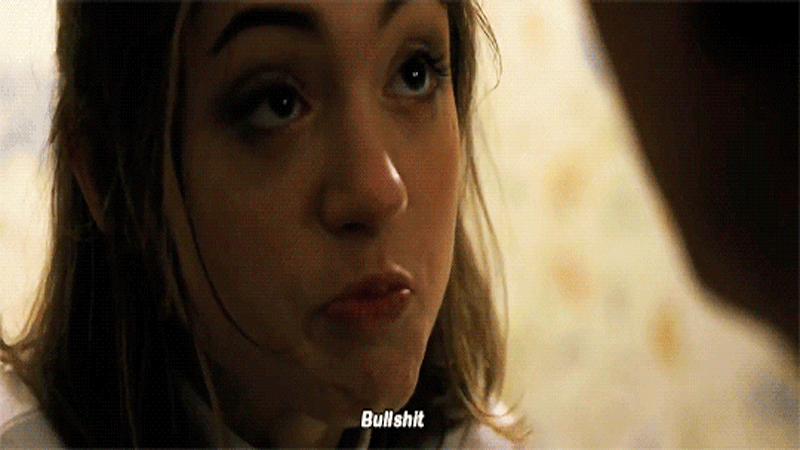
Or how about the first time Dustin stepped into Steve's car? Suddenly things were kicking into high gear, as the A-Team put a plan together to rid Hawkins of every Demogorgan baby that ever existed. And after all of that Steve even decided to bless baby Dustin with the secret to his locks of love: Farrah Fawcett
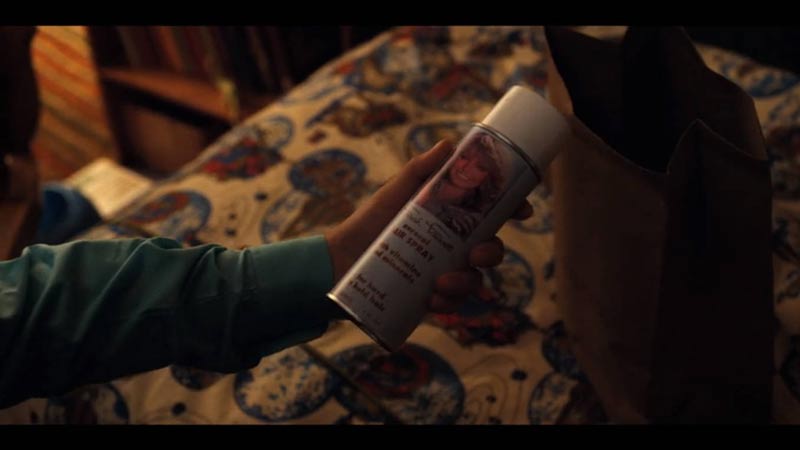
Long live Steve Harrington.
Standout episodes for this year include Trick or Treat, Freak, Will the Wise and The Spy.
11. Legion
FX
And now we come to the significantly better X-men show that premiered this year. Far more competent and focused than The Gifted's sprawling cast, Legion primarily focuses around a single mutant: David (who just so happens to be the son of Charles Xavier). Only explored on film as a tool in X2: X-Men United, David is far more interesting here as imagined by showrunner Noah Hawley (Fargo). Already having shown that he can take an established property and play with existing tools, Hawley is given far more leeway here as he takes full advantage of David's abilities to create a unique world, both within and outside of his mind. The rest of the cast is alright, but the true breakout star of this show is Aubrey Plaza (Parks and Recreation). Throughout this season she gives a performance that is a mixture of hilarious, terrifying and mesmerizing and Legion would never be the same without her. When the show decides to focus on other members of the cast, Hawley's efforts are less successful (particularly the confusing relationship between Cary and Kerry), but this doesn't take over the whole show thankfully. Definitely one of the most interesting new shows of the year.
Standout episodes for this year include Chapter 1, Chapter 4 and Chapter 7.
10. Feud
FX
Is there are more famous quarrel in Hollywood than the feud between Bette Davis and Joan Crawford? These were two women who were at the height of their careers until the cruel mistress that is time caught up with them and executives like Jack Warner left them in the dust. That is, until a plot was concocted behind closed doors to turn them against each other in order to fuel audience interest. Suddenly reporters like Hedda Hopper were all ears again for anything the two of them had to say, manipulating them to twist their words into statements that resulted in horrible public insults against each other. All of this and more was explored in the first season of Feud, a new anthology series created by Ryan Murphy (American Horror Story/American Crime Story) to go along with his other sister series. Along with him comes his star attraction Jessica Lange (American Horror Story), playing Joan Crawford against Susan Sarandon as Bette Davis. There's a raw palpability throughout the tragedy of what was done to these two that feels particularly current given the recent developments in how Hollywood has treated women. Can't wait to see the feud that's tackled next year.
There weren't any particular standout episodes for this show, because the whole season felt like one complete story to me. Therefore, I am declaring the entire season as a standout.
9. The Americans
FX
Coming off of it's best season ever, The Americans had a lot to live up to this year. Huge developments happened last season, including the climaxes of both the Martha and Nina Sergeevna storylines, and they resulted in the best episodes this show has ever had. So it only made sense that new storylines would have to be set up, and organically that means that the beginnings of those new storylines can't really be as exciting as the previous one's endings. That doesn't mean what's happening here isn't good, it's still interesting to watch and has great moments throughout, but it's inherently less compelling. That being said, this was a season full of anti-climaxes: meaning storylines would almost reach a boiling point, and then be snatched away in lieu of a more poignant moment (such as when Mischa was prevented from reaching his father by Gabriel). On the other hand, The Americans can still deliver one of the most intense moments of the year (in this case, when Philip and Elizabeth are split on whether or not to believe an old woman's involvement in a Russian massacre, and then Elizabeth shoots her in cold blood). So what that represents to me are two different viewpoints: that of a quieter more resonant version of The Americans, and then there's the far more intense dramatic fallout. Over the course of the series we've had a lot of the former, and I'm sure there's still plenty more of that to come next year. However, heading into it's final season I would personally like to see more of the latter, and all that would entail (such as Stan finding everything out). One more year to go.
Standout episodes for this year include Lotus 1-2-3 and Dyatkovo.
8. The Handmaid's Tale
Hulu
Based on Margaret Atwood's original novel, The Handmaid's Tale is without a doubt the most talked about and breakout show this year. It's going to be near the top of many other people's lists this year, and many people are going to agree with them. It stars Elisabeth Moss (Mad Men), and has become more current than it's writers could have ever foreseen given the way the election results ended up swinging. So why, you may ask is it not closer to the top of my list? This world is a dystopian future where fertile women are rare, and because of this they have been forced into servitude and are regularly raped by their captors. This does not result in a television show that is particularly pleasurable to watch. I found myself never truly feeling like I was in the right mood for the way this show makes you feel, and even though I can attest to its quality I simply enjoyed the other shows below this entry more. That being said, I still highly recommend this.
Standout episodes for this year include Offred, Late and Jezebels.
7. The Deuce
HBO
When David Simon created The Wire, it was not a breakout hit. Sure, it was recognized by the critics, but it never received a single award from the Emmys. It also never really became a part of the mainstream consciousness until long after it was over. Enter the present and it is almost universally considered one of the best television shows of all time, for the way it tackled the issues within the city of Baltimore; the incredible acting from the likes of Idris Elba and Clarke Peters; and the compelling writing, particularly in it's later years. So when The Deuce was announced, expectations were pretty high. It again features great acting, this time particularly from Maggie Gyllenhaal and Gary Carr (though really the whole cast is great). It also features a dual performance from James Franco as twin brothers, just as Fargo did earlier this year. I wouldn't say it's the best thing on television right now, but it definitely has the right look and feel to it; it just remains to be seen whether or not it will match up to it's pedigree.
There weren't any particular standout episodes for this show, because the whole season felt like one complete story to me. Therefore, I am declaring the entire season as a standout.
6. Mindhunter
Netflix
From the mind of David Fincher (Zodiac) comes yet another FBI serial killer drama. At first glance this is trotting out a genre that should've been put behind bars years ago, but as it unfolds you begin to realize why this is different from something like Dexter or True Detective. Instead of being told from the killer's perspective or the FBI exclusively, Mindhunter finds a way to meld the two together as it actively explores criminal psychology. The interview scenes with patients like Ed Kemper are nothing short of fascinating and the return of Anna Torv (Fringe) to television (albeit a bit underused here) is a welcome sight. In my personal opinion, this is the best new show of the year.
Standout episodes for this year include Episode 2, Episode 6 and Episode 8.
5. Better Call Saul
AMC
"You think this is bad, this chicanery? He's done worse!"
What a different path this show has taken. When Better Call Saul initially began, as the spinoff riding the high off of the flawless ending of Breaking Bad, it was interesting and different, but I found myself anticipating rumored cameos from the likes of Aaron Paul (the possibility of which probably shut down after The Path was picked up) more than the content of the show itself. However, as the show has matured and progressed all of those thoughts went away and my focus honed in on the incredible performances of Bob Odenkirk, Rhea Seehorn and most especially this year: Michael McKean. Sure it's great to have Giancarlo Esposito back in a full-time role again and Jonathan Banks has always done great work on this show but the beating heart of this show truly lies with those three aforementioned characters. The climax in Chicanery blew me away and truly signaled that this show had hit a new level, and could finally stop living in the shadow of the series that came before. There's a good chance that Better Call Saul will never be able to replicate the extreme kind of moments that Breaking Bad pulled off on a regular basis, but it's also not trying to. While they exist in the same world, Better Call Saul feels so much more personal than Breaking Bad ever could because Jimmy McGill is far more relateable than Walter White ever was. As the original series continued, Walter continued to become more and more detestable and yet as this new series has gone on Jimmy has become more human, seen most explicitly when he's at his absolute lowest in Expenses. And if the ending of this season is anything to go by, things are only going to get worse.
Standout episodes for this year include Sabrosito, Chicanery and Expenses.
4. Halt And Catch Fire
AMC
I know it doesn't feel like it now, but this is the start of something.
On the outside, Halt and Catch Fire appears to be a period piece about the progress of technology. It has all the pieces necessary and does sometimes touch on cultural events, but the true focus of this show is on relationships. And it's in this final season when these relationships are tested, with former friends and colleagues placed on opposing sides: husband against wife, mother against daughter. A daughter that has an idea; once realized, has the potential to revolutionize how people get to what they want. A father and mentor that capitalize on that idea, twisting it out of her grasp and making it their own. A wife that wants to make her own take on this idea, separate from those who she believes are trying to hurt her. A former partner, struggling with failure and just trying to help the person that was there for her. A washed out shell of a man, posing as a surrogate father figure and convinced that this can't be his last thing. These are the ties that bind a group of people that thought they could change the world with an idea, only to find out that they're always just one step too late.
Standout episodes for this year include Miscellaneous, Nowhere Man and Goodwill.
3. Mr. Robot
USA
See? They all came back. They're all fine. Here, I'll show you again. Told you. Everyone's okay again. Everyone's gonna be okay. Everyone's gonna be okay.
What a comeback. The first season of Mr. Robot made a huge impact on me, with a great pace and focus that the second season unfortunately lost. Don't get me wrong, these were still great characters that we were following, but most of the excitement was gone, and instead replaced with head games and a lot of smoke and mirrors. However, the third season is a huge return to form; it starts with a bang and then utilizes the rich character development accomplished in the previous season while bringing back the rollercoaster. Portia Doubleday is finally given a more interesting role throughout this season after her encounter with the mysterious Whiterose and it instantly made me captivated every time she was onscreen. The real kicker comes at the midpoint of the season with two episodes that are among the best the series has ever done. The first is an extremely calculated work of film that must have taken an insane amount of time to put together and even broke conventional network standards in a way that I've never seen before. Meanwhile, the second episode may not be quite as ambitious but what it does have going for it is a combination of nail-biting tension and a catastrophic conclusion. I haven't even mentioned the huge shift in the relationship between Rami Malek and Christian Slater's characters, which completely changes the dynamic of the show. Welcome back Brave Traveler.
Standout episodes for this year include Eps3.1undo.gz, Eps3.4runtime-error.r00 and Eps3.5kill-process.inc.
2. Nathan For You
Comedy Central
A part of me wondered if Bill was just a bored old man looking for an adventure to keep himself busy, and if I was just a bored younger man who also wanted an adventure, because he was tired of doing the same show for four seasons.
Nathan Fielder has built a career out of helping small businesses with the most awkward solutions imagineable. From threatening to destroy Uber for the sake of taxi drivers, to offering an asexual computer repair service, he clearly is willing to go anywhere for his craft. What I did not expect was the incredible lengths he would go to in his heartbreaking finale for this season. Completely ignoring the framework of what his show is, he creates a two-hour epic (for a show that's normally half an hour!) focused entirely on finding lost love for one of his former colleagues. It's a stark departure from the norm, and shows just how ambitious Fielder is. For me, this was one of the most impactful television episodes of the year and skyrocketed Nathan For You near the top of the list. However, nothing can compare to what comes next...
Standout episodes for this year include Andy vs. Uber, The Anecdote and Finding Frances.
1. Twin Peaks
Showtime
I will see you again in 25 years - From the season two finale of Twin Peaks that aired in 1991
David Lynch is no ordinary man. He has built his career with a diverse, controversial and strange collection of works featuring Kyle MacLachlan, Laura Dern and Naomi Watts. However, one of his most resonant works was left incomplete and warped: a shell of it's former self (that nonetheless featured a properly batshit finale penned by the maestro himself). I am of course talking about Twin Peaks.
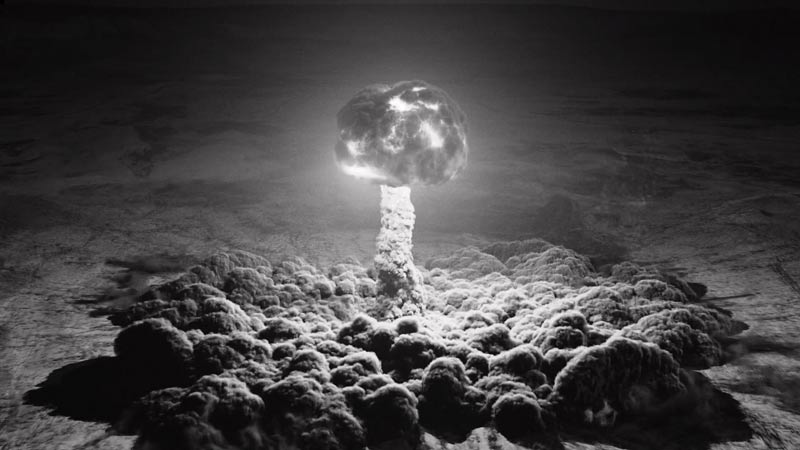
Frequently cited by other artists as one of their inspirations for getting into television in the first place (especially Damon Lindelof), Twin Peaks came on during a time when there was nothing else quite like it. The golden age of television only started within the past two decades and this was another decade before that, so to say that it was ahead of it's time is an understatement. This was a highly ambitious show, filled with compelling relationships and mysterious memorable writing.
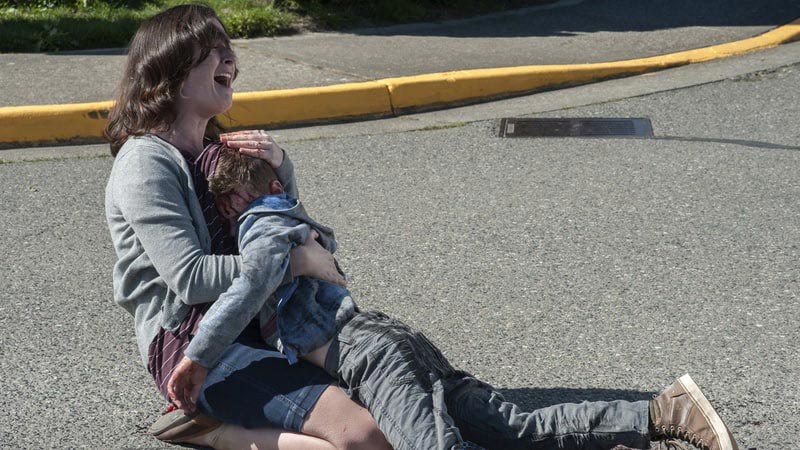
Through the darkness of future's past, The magician longs to see. One chants out between two worlds...Fire... walk with me.
Those last few lines are also the title for one of Lynch's most controversial films. Featuring the titular character Laura Palmer (much discussed, rarely seen), Fire Walk with Me was a prequel and a huge departure from the mix of comedy and mystery from the original Twin Peaks that turned off a lot of people when it was originally released after Twin Peaks was cancelled. Although it was largely considered a strange coda, Lynch has since gone out of his way to make as many plot points from the film as possible extremely relevant to the current revival, presumably to help justify and encourage others to seek out the film for themselves (note that Lynch would go on to find much greater success a decade later with Mulholland Drive, and then extreme controversy half a decade after that with Inland Empire).
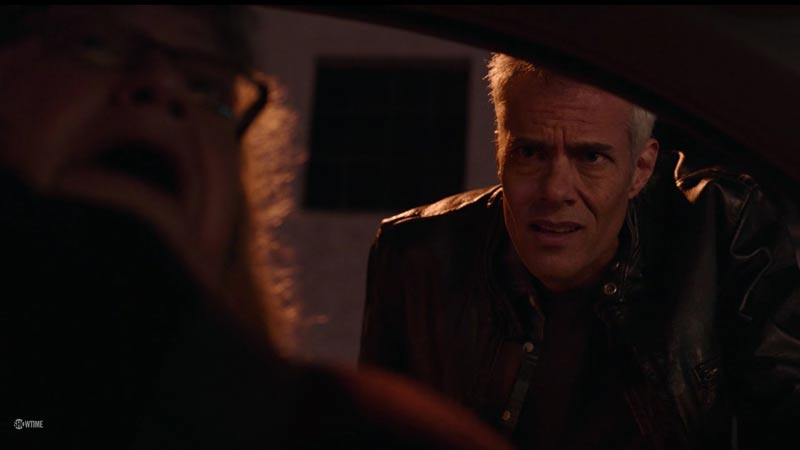
When it comes to the newest iteration of Twin Peaks, it's the most unique viewing experience I've ever had. Featuring 18 hours of pure unbridled madness written and directed by Lynch, there is nothing else like it on television. Far darker and more ambitious than the original series (taking a clear tonal nod from Fire Walk with Me), this is both a continuation of the original story and a clear injection of a special kind of crazy normally reserved for his films (and I want to be clear here: this is a television show, NOT A FILM). Part of this change is due to Lynch's far greater involvement in every aspect of this season and the other part is probably due to Mark Frost's hands-off approach to everything except for the writing (he was far more involved in the original Twin Peaks). What Kyle Machlachlan and Lynch have achieved here is nothing short of miraculous and yet also highly confusing (and at times, frustrating) upon first witnessing this season. The ending will haunt me for the rest of my life and upon further research it only becomes more twisted (After having done this, Lynch is in a never say never mode when it comes to if there will ever be more). If this is the end though, unlike the original ending to this series I would be happy to accept this horrifying conclusion.
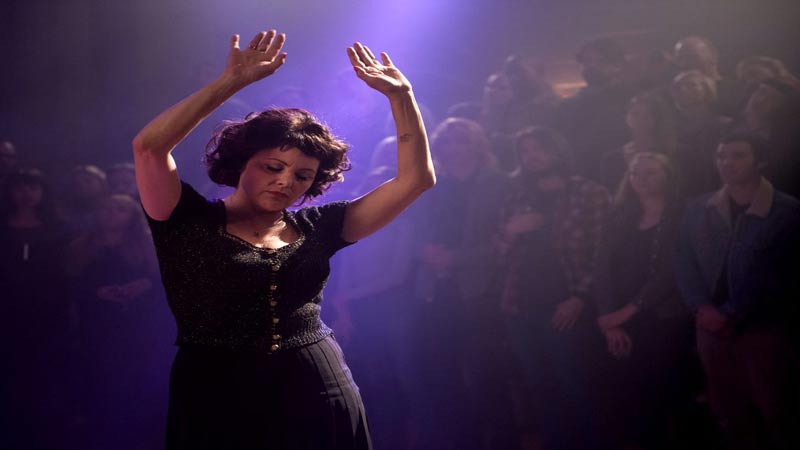
Standout episodes for this year include Part 6, Part 8, Part 11 and Part 16.
